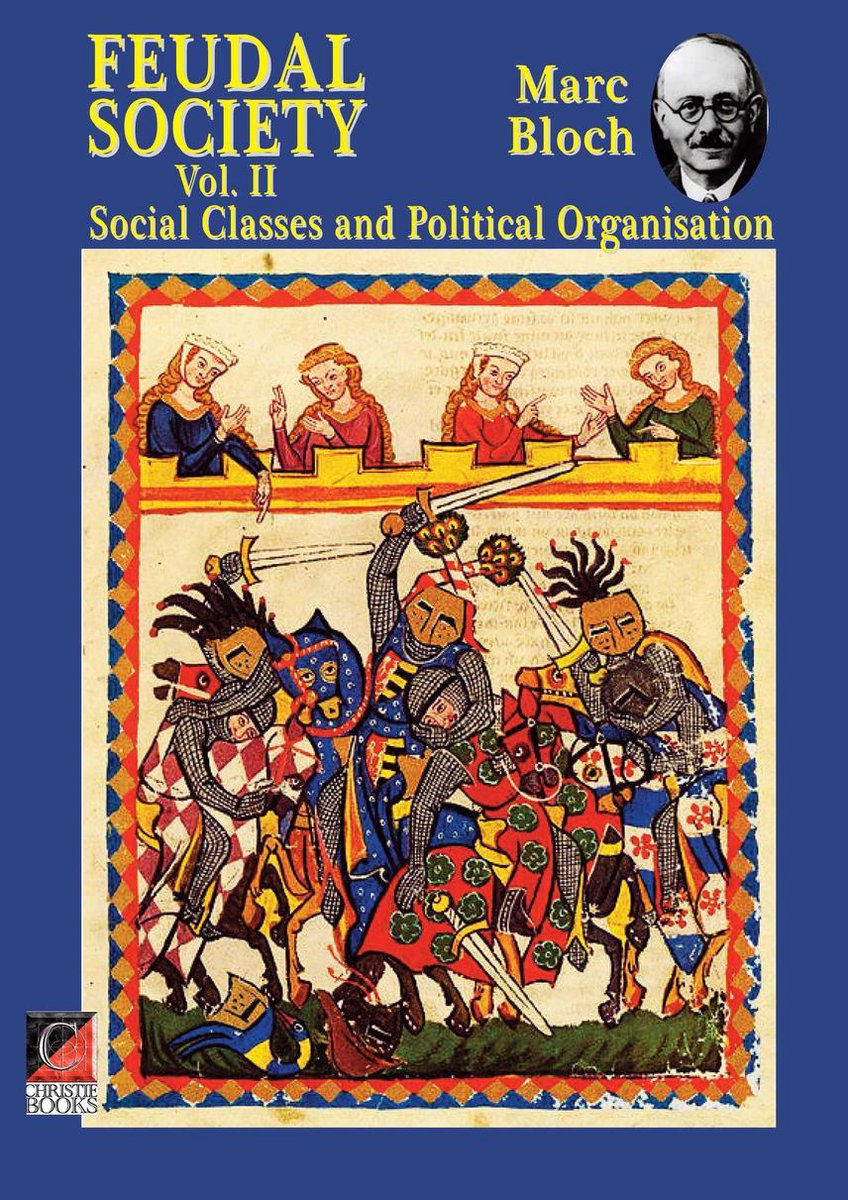FEUDAL SOCIETY Vol. II
Feudalism — which was essentially a political and military system — was above all a personal set of mutual obligations between lord and vassal. At its heart was the oath of loyalty. Before witnesses, a vassal placed his clasped hands between those of the lord and pledged to become "his man," a relationship usually sealed by a kiss between the two men. The vassal then took an oath of faithfulness. For his part, the lord also promised to “do justice” for the vassal and his family. If he failed to ensure such justice, the vassal might rightfully conclude that the bonds of the relationship had been broken, and that the lord was no longer owed his loyalty. Under the manorial system, the primary economic system that supported feudalism, the lord allowed the peasants to work the land on his estate(s)—or manor(s)—in return for a fixed payment. THE most characteristic feature of the civilization of feudal Europe was the network of ties of dependence, extending from top to bottom of the social scale. (How such a distinctive structure arose and developed, what were the events and the mental climate that influenced its growth, what it owed to borrowings from a remoter past, we have endeavoured to show in Volume I.) In the societies to which the epithet “feudal" is traditionally applied, however, the lives of individuals were never regulated exclusively by these relationships of strict subjection or direct authority. Men were also divided into groups, ranged one above the other, according to occupation, degree of power or prestige. Moreover, above the confused mass of petty chiefdoms of every kind, there always existed authorities of more far reaching influence and of a different character. From the second feudal age onwards, not only were the orders of society more and more strictly differentiated; there was also an increasing concentration of forces round a few great authorities and a few great causes. We must now direct our attention to the study of this second aspect of social organization; then we shall at last be in a position to attempt to answer the question which it has been the main propose of our inquiry a elucidate, namely by what fundamental characteristics, whether or not peculiar to one phase of Western evolution, have these few centuries deserved the name which thus sets them apart from the rest of European history? What portion of their heritage has been transmitted to later times? Feudal Society is a great work of historical synthesis in the finest French tradition. The author treats feudalism as a living and vitalising force in the society of Western Europe from the ninth to the thirteenth century. After surveying the social and intellectual conditions in which feudalism developed, Bloch examines the nature of the bond of kinship both as a predecessor and as a concomitant of vassalage. The core of the book is a masterly account of the creation of ties of dependence and of relations of lord and vassal, and the origins and nature of the fief. The nobility and their way of life, knighthood and chivalry, the clergy and other forces in society are also portrayed, and the work concludes with a discussion on feudalism as a type of society. Throughout the author treats history as a living organism and endless process of creative evolution. “Here is one of those rare books of impeccable scholarship (superbly translated by Mr Manyon) which no intelligent person could possibly read without pleasure and interest and excitement. What Bloch’s book gives us is the anatomy of an age. Some would call it sociology rather than history, or at any rate historical sociology. If so, it adds a new dimension which most historical writing lacks.”—GEOFFREY BARRACLOUGH, The Observer “This is not only a scholar's book for other scholars, or a mine of information for students, though it happens to be both these things as well, it is a book for every intelligent reader interested in the living past of Europe.” —C. V. WEDGWOOD, The Daily Telegraph THE AUTHOR Marc Bloch, one of the great historians of our time, was born at Lyons in 1886 and educated at the École Normale in Paris. He was for many years Professor of Medieval History in the University of Strasbourg before being called in 1936 to the Chair of Economic History at the Sorbonne. In the war he joined the Resistance, but was caught by the Gestapo, tortured, and shot near Lyons in June 1944. Though his other writings had won him international reputation among historians, Feudal Society is generally regarded as his masterpiece.
- Ean/ISBN: 1230001028133
- Review:
